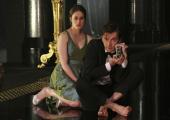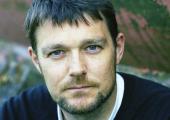Romeo and Juliet, RSC/Roundhouse

Shakespeare ensemble's London return makes stars of two star-crossed lovers
Can you go home again? That's the question that will be hanging over the Royal Shakespeare Company's first residency at the Roundhouse since their "History Play" cycle stormed north London over two years ago, reminding those lucky enough to catch it of the loss to the capital ever since the RSC opted out of a London base of operations.









